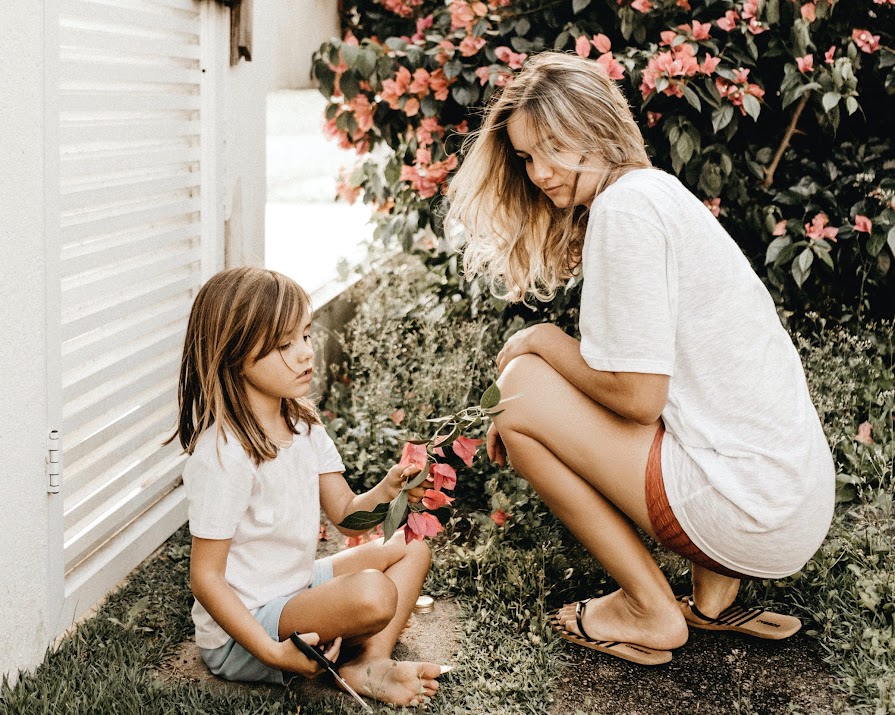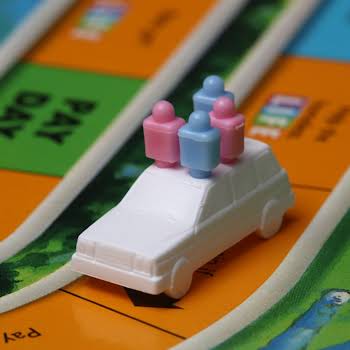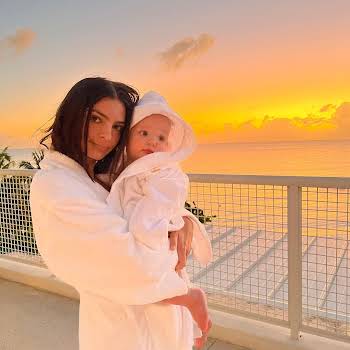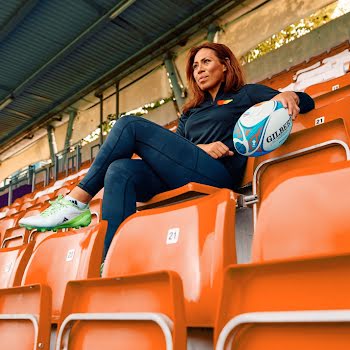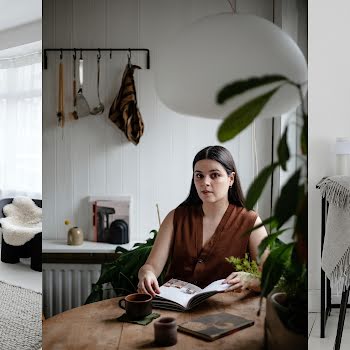
‘This much I have learned from parenting books — bribery doesn’t work’
By IMAGE
18th Sep 2020
18th Sep 2020
Alex is an Irish mother to two children under four, living in Barcelona. This week, she tries negotiating with her daughter when she decides she doesn’t want to do swimming lessons anymore.
Fingers tippity-tapping upon the touchpad of my phone, I briefly shade my eyes and look up at the scene in front of me. I am sat outside of the barrier fence of the community swimming pool, waiting for my eldest daughter to start her swimming class. I have been here for 15 minutes. I have another 45 minutes to go.
The sun is hot, the light breeze like a sigh from an oven, and as the sweat runs warmly between my shoulderblades I consider why I am sat here, on my phone, in the shade, waiting for my daughter.
The past three weeks, whilst living with our in-laws in the countryside, in the province of Tarragona, Spain, Lily (nearly 5) has been learning to swim.
She was not starting from zero — she has been taking swimming lessons on and off for the past two years — but this was her first long course, in the “big” pool. And it was also in Catalan. With completely new teachers. And new classmates. After COVID and five months all day and night (except for one stolen night away) with Mom and Dad. She was, understandably, a little apprehensive.
The first week passed quickly in the excitement and energy of the new and alluring. She returned each morning tired, content, motivated. The second week her motivation seemed to take a dip as the reality of hard work and repetitive diving and floating drills began to sink in.
Each new morning she seemed less eager to enter and less content with every exit. But to hand it to her, she persevered.
The language barrier also seemed to be taking a toll on her confidence and her once strong desire to practise her Spanish and Catalan started to wane. Each new morning she seemed less eager to enter and less content with every exit. But to hand it to her, she persevered.
The crunch point came on the morning of the beginning of the third week of lessons. Monday morning, 10 am, I enter the living room armed with the packed swimming bag in one hand and the factor 50+++++++ sunscreen in the other.
Making my way through the doorway, I sense an immediate shift in the atmosphere of the room. Lily presses herself further into the sofa upon which she sits and sinks behind the cover of the blue iPpad with which she is practising Mathseeds.
She does not meet my eyes. “Come on Lily,” I chirrup brightly, “time to get ready for swimming class.” She remains mulishly silent, hidden behind the Ipad, but I see the telltale quivering of her bottom lip. Uh oh.
“Lily…?”, I gently question. She sets her face into a parody of my own stern, I-mean-business gaze. “I DON’T WANT to do swimming anymore,” she decrees and buries herself even more firmly into the arm of the sofa.
It is a tricky balance. I don’t want to be THAT Mom, but on the other hand, swimming is arguably THE most important life skill for a child in a summer filled with swimming pools and river hikes and beach swims.
And loathe as I am to force her to do an activity that she clearly no longer wants to do, I don’t, in principle, agree with her abruptly giving up something she used to love. At least not without discussion and good reasoning.
She refuses to carry her bag, put on her sunblock, or even walk out the door.
I consider my lines of entry — your friends will miss you, you are doing so well and improving so much, the teachers will miss you, bribery with ice cream, but they all fall flat in my mind. So into the truth and over the hump we go.
“Lily, I don’t think we should give up your classes. They haven’t finished them yet. You agreed to do them when we signed up. Daddy and I think that learning to swim is incredibly important. It keeps you safe at the pool and the beach. What can I do to help you?”
This much I have learned from parenting books and courses and audio. Bribery doesn’t work. Honesty is always the best policy. And most importantly, children are allowed to have ALL their feelings about whatever decisions you (we) make. And that is the hardest bit.
She cries and protests and her sister begins to cry and protest in sympathetic sisterhood, but I hold firm. She refuses to carry her bag, put on her sunblock, or even walk out the door.
It would be easy to sneak away, to pretend I was hidden behind a plant or a tree or even just out of sight, but that is not the point.
I reiterate that she needs to finish her swimming classes and I pick her up (she is nearly the length of my body when in my arms) and walk out the door. I repeat my question: “What can I do to help you?” And through the fabric of my t-shirt comes the muffled reply: “I want you to stay and watch me and wave at me. I don’t want you to go.”
That is the deal. She will go swimming and I will sit outside the barrier gate (as per COVID regulations) and I will wait and watch and wave for the 60 minutes it takes for her to complete the task she started.
And as I sit and wait and watch and wave, I realise that this is the currency of childhood, this is the beginning and the extension and the growth of trust. It would be easy to sneak away, to pretend I was hidden behind a plant or a tree or even just out of sight, but that is not the point.
The point is the negotiation, the rules set and the cards displayed. She doesn’t want to do the hard work of swimming, I don’t want her to quit. So this is the entry fee I pay to set my value upon her world. And my ability to do my part, to keep my word, is crucial.
So I sit and tap and type and ponder a world where we all keep our word, where trust is implicit, and where we all feel safe and valued and loved.
Feature image: Pexels
Read more: Why your wild child is destined for success
Read more: Should you wait until your child is five to start ‘big’ school? We asked child psychologists for their advice
Read more: The truth about motherhood: ‘I had to recalibrate myself from the care-free version of myself’











